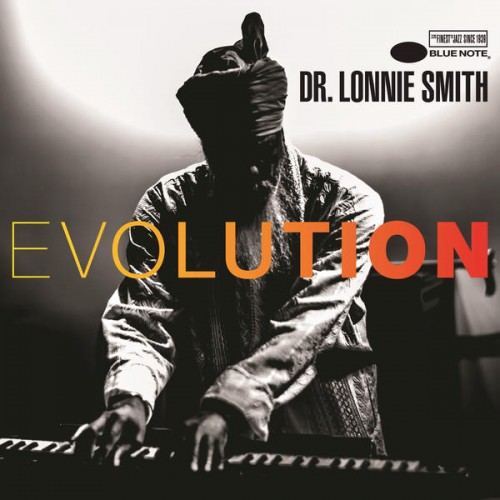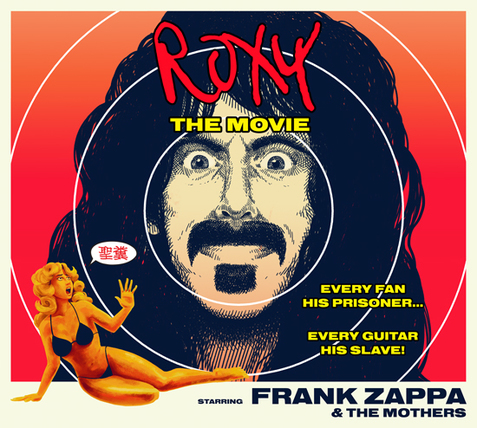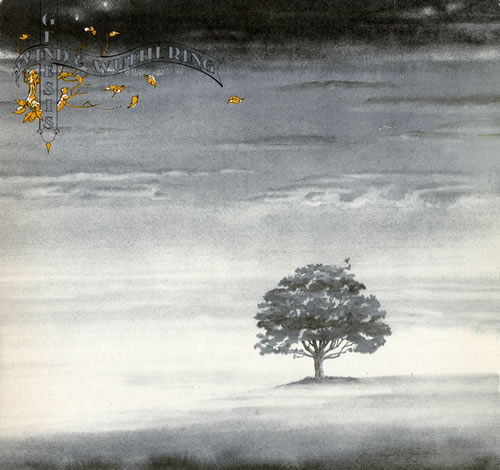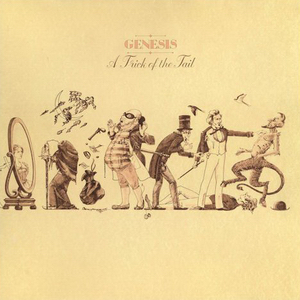-
Posts
12,717 -
Joined
-
Last visited
-
Days Won
1 -
Donations
0.00 USD
Content Type
Profiles
Forums
Events
Blogs
Posts posted by Jim Alfredson
-
-
8 hours ago, crisp said:
Oh and I am quite aware that FLAC files are compressed. They are nowhere near as compressed as MP3s, though.
The difference is the kind of data compression. FLAC uses a lossless data compression which means that upon decoding no information is lost; you have an exact digital copy of the original file. If you've ever downloaded and extracted a ZIP file from the web, it is the same concept.
MP3 data compression is lossy, meaning it throws away parts of the data is deems unnecessary. It uses psychoacoustic theory to determine that. If you encoded an executable file (a program) with a lossy data compression scheme, like MP3, and tried to run it once decoded, it wouldn't run because it would be missing actual data. -
44 minutes ago, StarThrower said:
From what I've read, the former band members are getting screwed on that release, as the label is paying them no royalties.
Well that's a shame. Where did you read that? Charisma is long gone, absorbed by Virgin and now EMI. Seems like they'd still be owed royalties at this point.
-
Does the thumbnail not appear for y'all as well? I've uploaded a new one three times and it seems like it doesn't want to take.
-
I just ordered this as I've recently gotten into Brand X. I've been a lifelong Genesis fan and I enjoy a lot of Collins' solo work (mostly the early stuff) but I never bothered with Brand X until stumbling across Moroccan Roll on YouTube a few months ago. Listening to that album, it became obvious that Brand X had a very distinct influence on Collins' subsequent work with Genesis and his solo career.
This boxset seemed the most cost effective way of acquiring some of their catalog. Anyone else have it? How is the sound quality? The album art is damn atrocious but I don't care about that.
http://www.amazon.com/Nuclear-Burn-Brand-X/dp/B00O9K8WS4 -
Why is Resonance so reticent to put samples on their website? All you have to do is put 1 to 2 minute clips up on Soundcloud and embed the player. It's easier than ever these days.
-
It's been a dream of mine to create a media server with FLAC rips of all my CDs (I probably have 4000 at least... I lost count a long time ago) and use a software that can auto-convert them to mp3 on the fly so I can stream them to my phone on long drives, etc. And of course also stream them uncompressed via my wireless network to any audio system in the house. I'm slowly ripping my CDs but at this rate I'll be done when I'm dead.
Nostalgia is a powerful emotion. It's the reason why I've spent several hours over the last few weeks repairing my old Commodore 64 computer and floppy drives, investing a small amount of money into the project and even buying a modern interface so I can transfer files from floppy to my PC and vice versa. The C64 is obviously obsolete technology but loading up those old games and playing with my kids is fun and a nice trip down memory lane. But it is better than an iPad or modern tablet? Or even my iPhone? From any objective criteria it is not. Yet I enjoy it, much to the chagrin of my wife.
I think the same is true of vinyl. It's fun, it's tactile, it's nostalgic. And that's fine.
-
Here's a sample up on Soundcloud.
-
Hope you get a sale! Good luck and nice to see you here.
-
It's an inside joke. Essentially a few years ago while on an East Coast tour, we picked up a copy of JazzTimes and noticed that almost every musician in there was wearing a scarf. We joked that in order to take our music to the next level, we needed to wear some damn scarves.
-
Another tune from our upcoming album(s).
-
I've pre-ordered through Amazon. Looking forward to hearing it.
-
I changed the topic title to make it easier to find (assuming that the search engine works...
 )
)
I just picked this up today and I'm listening now. It's a great sounding recording, mastered by the one and only Ron McMaster. How could you not be a mastering engineer with that name? Nice playing by all involved. It's great to see Dr. Lonnie back on Blue Note.
Did anyone catch him on Late Night with Jimmy Fallon? He was playing a Hammond SK2 with The Roots. It was pretty damn cool.
-
9 hours ago, Scott Dolan said:
Why? I thought you said you couldn't hear a difference between CD and HD digital.
A good question and after I wrote that post I spent some time comparing my down-sampled 16bit/44.1kHz masters to the original 24bit/88.2kHz files and I couldn't hear a difference. I keep wanting hi-res to sound better but I can't say that it does if I'm honest with myself.

-
Right now I'm listening to an album I mixed and mastered by Michigan State University jazz guitar professor Randy Napoleon with Rodney Whitaker on upright bass and Greg Hutchinson on drums (soon to be released on the Detroit Music Factory label). It was recorded by my good friend Glenn Brown in 24bit / 88.2kHz, with all the players in the same room, balancing off each other. Glenn has an impressive mic collection and is a fantastic engineer so the mixing was quite simple.
And it sounds fantastic. Would it sound better on tape? Well, I'm using a tape emulation plug-in in the mastering chain and it provides a nice overall glue along with a weight to the low-end. Would it sound better on vinyl? Nah. The 88.2kHz master sounds really amazing. I hope they release it in hi-res as well.
-
4 hours ago, Teasing the Korean said:
I have LPs that blow away their CD counterparts, and vice-versa.
I do not doubt this but I would argue that such results are not due to the medium itself but rather the expertise with which it is utilized.
3 hours ago, AllenLowe said:I love 24/96 multitrack as a a recording format, but if money and time were no object, BIG tape would win every time, with Dolby S if had to use noise reduction.
I would tend to agree though with some types of music the quickness of digital is a better choice.
-
1 hour ago, JSngry said:
And I wasn't there for it, but there was a time when reel-to-reel was considered a superior playback medium than LP in some circles.
I would agree that reel-to-reel is better than vinyl. I'd love to hear the original master tapes of the Genesis catalog. I bet they sound amazing. Put those directly onto CD and now we're talking.
-
To expand on the original post and perhaps simultaneously answer the question whether a change in genre would make a difference...
We listened to the first three cuts of Trick of the Tail. This is a very dynamic album. As I said, the first track, Dance on a Volcano, sounded really nice on vinyl. I will admit that it might have a slight edge over the CD version due to the cymbal harshness, though I am convinced that said harshness is the result of a poor mastering job on the CD.
The second track begins quietly, with a single 12-string guitar joined by another 12-string after a few measures and then the vocals. The drums are absent from the entire track. Here the CD sounded far superior in every way. More definition, more detail, and more life-like sound. The vocals were clear and present and the stereo separation and panning details were superb.
By the time the third track rolled around (spun around?), the vinyl was beginning to really sound poor. This is due to the physical limitations of the medium. As you get closer to the spindle, you get harsher highs, more distortion, and a general muddying of the sound. From this article:
"While we’re on the curvature subject, it is necessary to explain one more thing. Ever wonder why outside diameter cuts on a record sound clearer and cleaner than inside ones? Unfortunately it’s a fact. Why? The answer is geometry, curvature again. One turntable revolution at 33 1/3 rpm on an LP takes 1.8 seconds. That 1.8 seconds is spread over a circumference of 36 inches on the outside of the record. At the minimum allowable inside diameter that same 1.8 second revolution would only cover 14.9 inches. You can see from this, that a gentle wiggle spread over 36 inches would get quite ‘scrunched’ over 14.9 inches. A jagged groove at 36 inches would get really scrunched at 14.9 inches (remember the rapids). Excessive treble can even cause the cutting stylus to accelerate so fast that its back edge wipes out what the front edge just cut! It’s unfortunate, but treble rolls off, and distortion goes up as you approach the center of the record. It is quite gradual, but if you compare the source recording to the disc, this actually starts to become noticeable after the second cut or so. Any attempt to compensate for this by boosting the treble, only makes the problem worse (greater curvature remember)."So would a change in genre have made a difference? I don't think so. A different style of music cannot overcome the deficiencies of the medium itself. In fact on even more dynamic music, like classical, I would predict the deficiencies to be even more pronounced. Some of my favorite classical recordings are 24bit/48kHz downloads from HD Tracks. The dynamic range is just glorious. The frequency response is ruler flat. Achieving that on vinyl is simply impossible.
Lastly, we ended the night watching the recently released Frank Zappa - Roxy the Movie Blu-Ray in 5.1 surround. No cymbal harshness there, even with two drum kits on stage (Chester Thompson and Ralph Humphrey). The sound is absolutely brilliant and immensely enjoyable. Every note, every percussion hit, every nuance is right there. The mixing and mastering is absolutely top-notch. It is an inspiring testament to just how good digital can sound when the engineers know what they are doing.

-
Tonight my friend and I sat down and listened to some vinyl for the first time in years. I have a VPI HW-19 Jr turntable with a Rega 300 arm and a Grado Red cartridge going into a McCormick Micro Phono Preamp. Not a shabby playback setup if I do say so.
We focused on music that I had on multiple formats. We started with the classic Genesis album Wind & Wuthering. I have a vinyl re-issue as well as the 1997 Definitive Edition CD. I began playing both as close to simultaneously as I could so we could switch between them. The CD was far superior in almost every way but that's not saying much; the vinyl re-issue was cheap, very thin vinyl. The vinyl did have the edge in the smoothness of the cymbals. More about this later. The vinyl had a nice 'glue' to it but the vocals were not as present and the distortion caused by the medium itself was annoying.

Second we tried A Trick of the Tail. This time I have an original pressing of the vinyl and the Definitive Edition CD. Again the CD sounded better but I have to admit there was something really nice about the very first track on the vinyl. As the album progressed, the sound got worse and worse (a product of the medium) and the CD in comparison sounded better and better. But the first cut on the vinyl sounded really good. Again, the cymbals were clear but not harsh. But like W&W the vocals had a fuzzy, almost distorted quality around them.

I want to offer a caveat here: I think the Genesis catalog is long overdue for a proper digital re-release. The 1997 Definitive Editions are the best so far but they all suffer from the same slightly harsh highs. The 2007 remixes by Nick Davis are awful. He did not stay true or pay homage to the original mixes, instead opting to modernize everything. The drums are too loud, the vocals too upfront, too much dynamic compression on everything, and on some albums like The Lamb Lies Down on Broadway, entire parts (like background vocals) are missing. They are unbelievably bad. I would love someone like Steven Wilson to be hired to do a proper remixing and remastering job on the catalog.
Next up, we tried Blackstar, the final David Bowie album. Thanks to my friend I now have this on vinyl as well as CD and high-res audio from HD Tracks.
First we compared the HD audio to the CD. The HD tracks are 24bit/96kHz. Neither of us could really tell a difference. I kept wanting to hear something but when I'd go back and listen to the other source, I really couldn't tell. I have no idea if these hi-res tracks are actual mixes from the original hi-res master (if there even is a high-res master) or if they are simply up-sampled versions of the CD tracks. Who knows? All I know is that I could not hear any difference at all.

The vinyl actually sounds really good. However, I think the CD / digital audio still wins. My friend liked the vinyl more but he said he lived with the album for weeks just listening at the gym on crappy earbuds, so the lack of 'fidelity' and the 'smushiness' that vinyl imparts on everything wasn't an issue for him and he preferred it. I liked the digital better because it had way more punch, more dynamics, and less distortion. But the vinyl did have a nice vibe to it. It was certainly very carefully mastered and pressed. And the packaging is awesome.
So that's that. I understand why people love vinyl; it's really cool and fun. But the fidelity when compared to CD is obviously lacking. Even with the occasional harshness in those Genesis CDs, there are enjoyable details revealed that are completely masked by the noise floor and surface noise of the vinyl. Maybe one day we'll get high-res transfers of the original master tapes of the Genesis stuff. Until then, I'll take my Definitive Edition CDs over the vinyl.
-
You can put more minutes on an LP but at the expense of the frequency response (mostly in the bass range).
-
Hi Jeff,
To my knowledge, the default settings are authentic to how the expression pedal works on a B3. They give you the option to change the parameters so that you can emulate some of the older models that didn't have the 'loud/soft' volume switch on the left-hand side (like a real B3 does). For example, the Hammond BC models have much more range of volume on the expression pedal than the B3. -
There has been a lot of discussion about this over at the Invision community forums. One problem is that MySQL, the database system upon which this forum is built (and most other forum software) is notoriously bad when it comes to searching data. Invision has attempted some other solutions in the past but none have been satisfactory.
It seems there is a plug-in I can add that acts as an addendum to the current search function using Google. It supposedly works quite well however it is very broad, throws up individual pages, and only displays topics in the results, not individual posts.
https://community.invisionpower.com/files/file/7866-dp41-cse-google/
The search problems may also be related to or compounded by the fact that the server is not running the latest version of MySQL or PHP. I will ask my host about upgrading those. -
Last year I released my debut progressive rock album THEO - The Game Of Ouroboros. I'm very proud of it. Here's a few tracks off the album, which is a pseudo-concept album set in a dystopian future of one-world corporate government.
Limited edition Blu-Ray with 24bit/96kHz 5.1 surround mixes is still available although I only have a few dozen left. Also available on CD and hi-res FLAC / mp3 download.
http://www.big-o-records.com/zen-cart/index.php?main_page=product_info&products_id=31 -
If you're really nostalgic for the sound of vinyl, just play all your digital media through this:
https://www.izotope.com/en/products/effects-instruments/vinyl -
No I get it. But I can't reference any concrete examples because frankly I don't listen to a lot of modern music. But the 'holy grail' in modern digital recordings (at least in non-classical genres) is to make things sound 'warm' and 'analog'. There are literally thousands of plug-ins that claim to do so (with varying degrees of success) as well as hundreds of hardware units (mic preamps, compressors, limiters, etc.) that are marketed as 'warming up' the 'cold digital sound'.
I guess in terms of recent recordings, I would point to Steven Wilson's "The Raven That Refused To Sing" as a brilliantly engineered album (not to mention the cool music itself) that sounds to me like something from the pinnacle of analog recording (late 70s). It was engineered by Alan Parsons and recorded to HD ProTools but the signal chain up until the computer was all analog; analog EQs, mic preamps, compressors, etc. To my ears it sounds incredibly warm but with far more fidelity, frequency range, and dynamics than vinyl could ever muster. Basically the best of both worlds.
_forumlogo.png.a607ef20a6e0c299ab2aa6443aa1f32e.png)


Tonight I compared vinyl, CD, and HD audio
in Audio Talk
Posted
Yes, the definition of a lossless compression scheme means that no data is lost once the data is decoded. So a FLAC file is exactly the same as whatever file it was made from, just smaller. So no, there is no compression left after the decoding.
Don't confuse data compression with dynamic (audio) compression. They are two very different things.